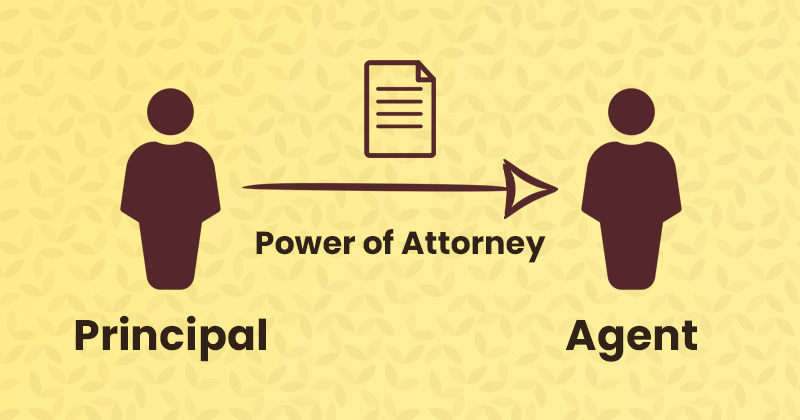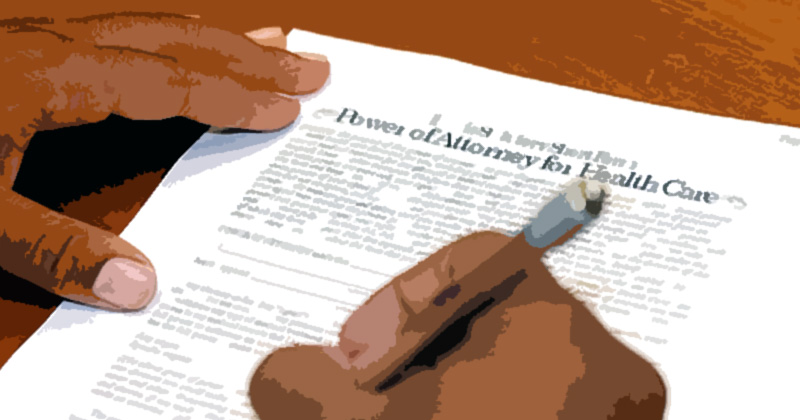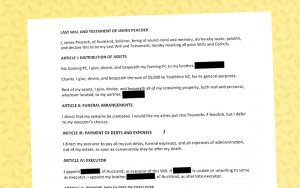As a lawyer, I often have clients that approach me in a state of panic, when their parents are diagnosed with an illness like dementia, and they don’t have a power of attorney in place. Thankfully, the panic is misplaced: There are options.
You can get power of attorney for someone who is incapacitated (i.e. unable to make decisions for themselves) by applying to court for a guardianship or conservatorship order. These orders typically grant the same legal powers an agent would have under a durable power of attorney.
In other words, while you can’t technically be granted power of attorney by a loved one who does not have capacity, that doesn’t mean there is no way for you to obtain the legal responsibility to make medical and financial decisions on their behalf – you’ll just need to convince a judge to grant you those powers.
Read on to learn why this is the case, and the options you have.
In This Article
Power of Attorney Explained

According to the American Bar Association, a durable power of attorney, also known as an enduring power of attorney in some jurisdictions, is a legal document that allows one person (Principal) to appoint another person (Agent) to handle their affairs on their behalf, while the Principal lacks capacity.
Understanding Capacity and Incapacity
Someone who “lacks capacity” is someone who is no longer able to make decisions for themselves due to diminished mental functions, as determined by a medical professional.
For example, someone in a coma and disabled following an accident, or someone with a serious illness like dementia.
In these circumstances, the person who lacks capacity can be described as “incapacitated”.
On the flip side, someone who does have the ability to make decisions for themselves has capacity.
People Who Lack Capacity Can’t Make Decisions For Themselves
A person who lacks capacity cannot make important medical, financial, and legal decisions for themselves.
That’s where an durable power of attorney comes in.
While a person has capacity, they can appoint someone they trust to make decisions on their behalf for when and if they lose capacity in the future.
But they can’t appoint someone to make those decisions after they’ve lost capacity. Nor can they consent to an appointment.
So, what happens when a person forgets to appoint someone in a power of attorney or living will when they had capacity?
Obtaining Power of Attorney Powers for Someone Who is Incapacitated

As alluded to earlier, if someone is incapacitated and does not have a durable power of attorney in place, you cannot technically obtain power of attorney for them – because they’re not in a position to grant that power.
However, you can seek alternative legal options that serve the same purpose.
One such option is to apply to a court for a guardianship or conservatorship order.
A guardianship order grants decision-making powers over medical and personal matters on behalf of an incapacitated person.
On the other hand, a conservatorship order gives similar powers but with respect to financial matters.
Applying for a Conservatorship or Guardianship Order

Applying for a conservatorship or adult guardianship order can be a pretty difficult, and time-consuming (although emergency options are available), and expensive, process. I strongly recommend you seek advice from an attorney if it’s something you’re considering.
To obtain either of these orders, you’ll need to go through a court process (usually probate court) that typically requires:
- Evidence showing why granting you those powers would be in the best interest of the incapacitated person, including establishing your relationship to them.
- Evidence that the incapacitated person is, in fact, incapacitated, which may include presenting medical reports from doctors and other experts who can attest to their capacity.
- Ideally, evidence that other family members or close friends of the incapacitated person consent to you being granted the powers.
It’s worth noting that obtaining either of these orders comes with significant responsibility – legally, financially, and morally speaking.
Please note: The information provided in this article is for general US legal system informational purposes only and is not legal advice. This article does not create an attorney-client relationship between the reader and the author, nor should it be relied upon as a substitute for legal advice regarding your specific situation.










